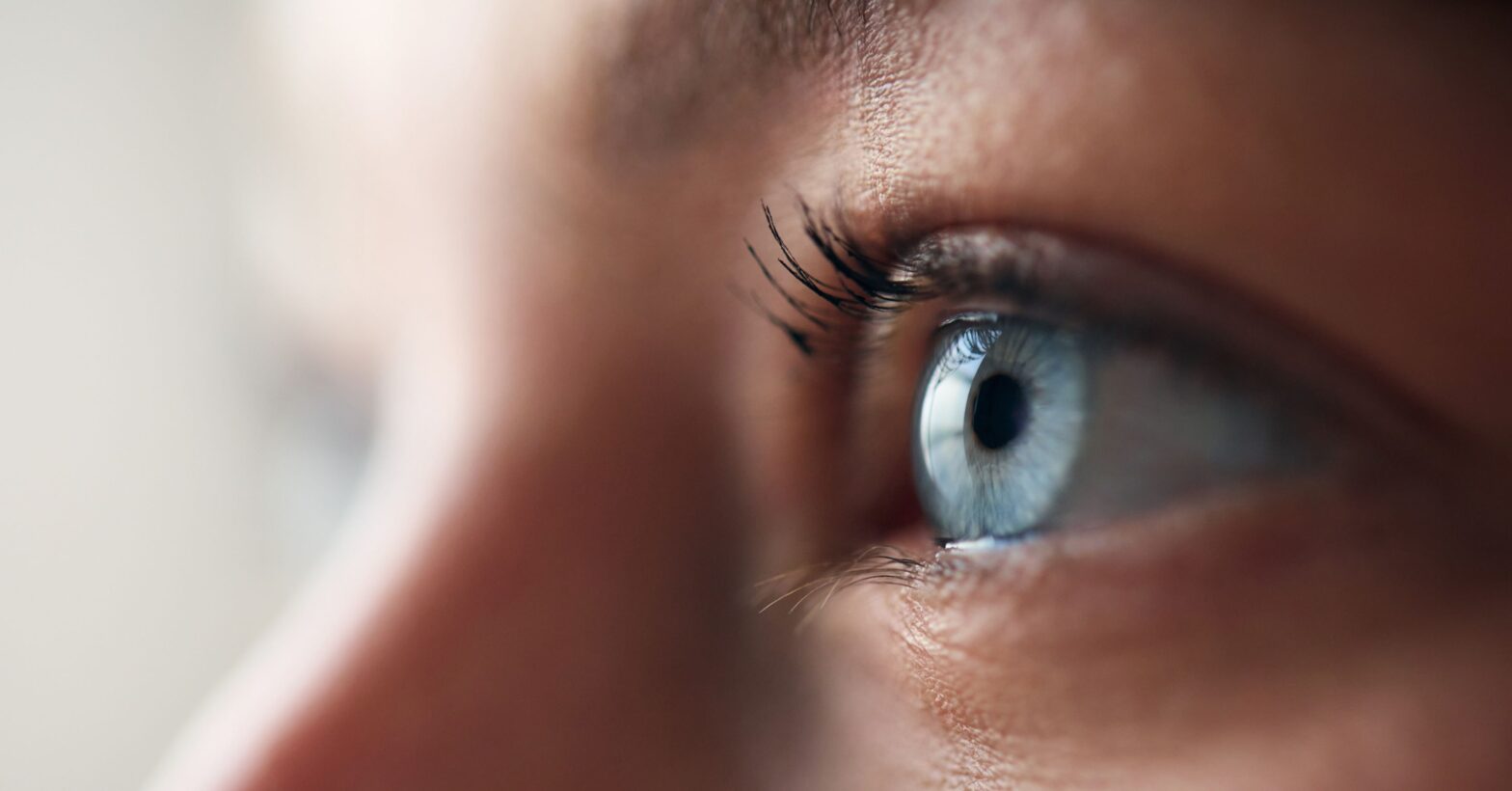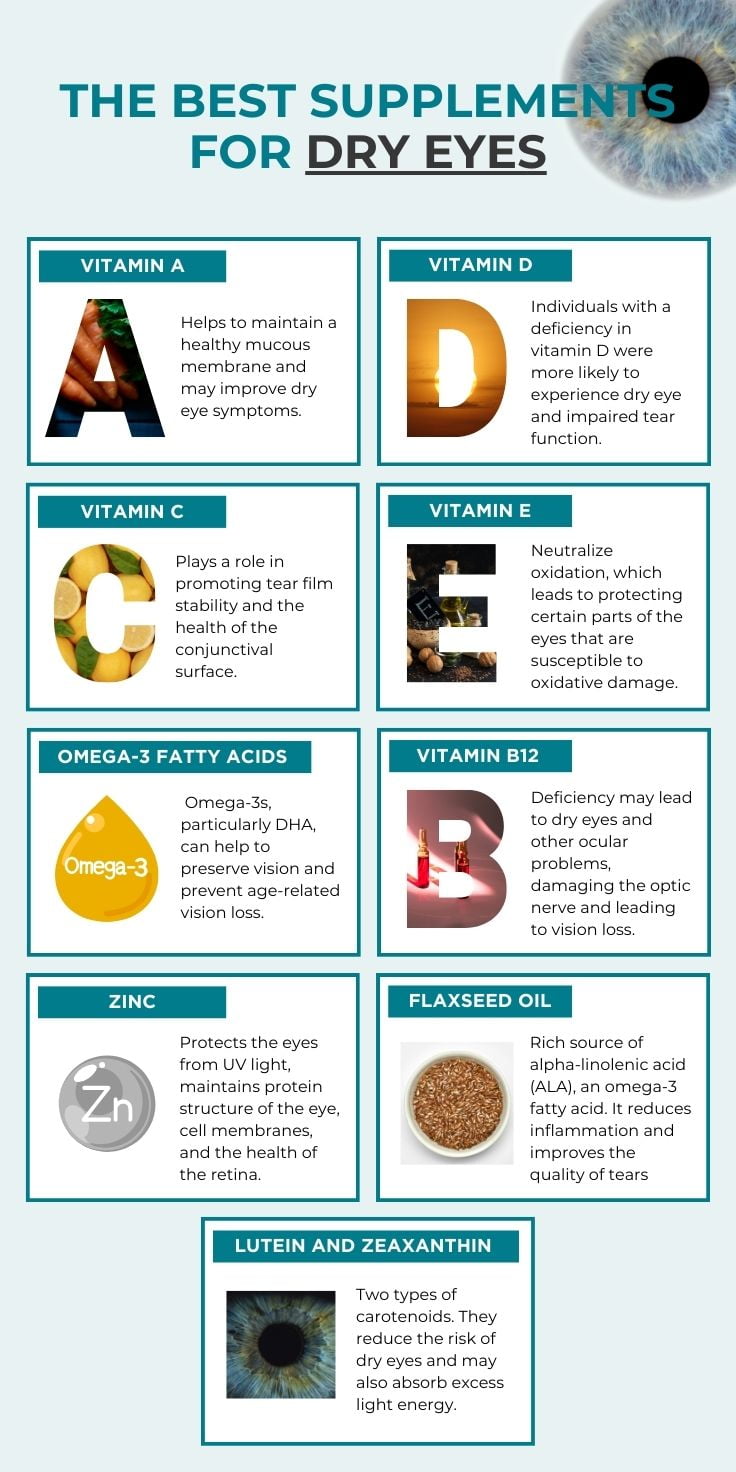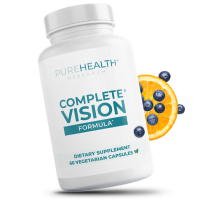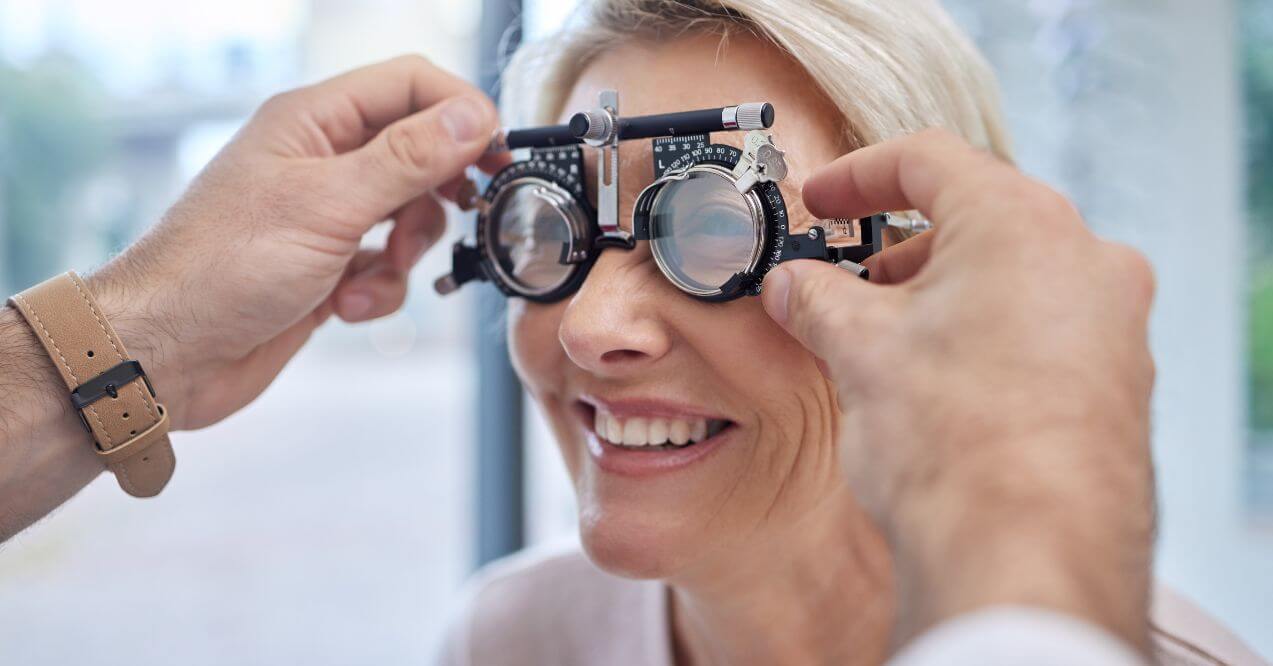9 Best Supplements for Dry Eyes (+ Infographic)


Searching for the best supplements for dry eyes? You’ve come to the right place!
Dry eye syndrome or keratoconjunctivitis sicca, happens when the eyes lack enough moisture due to problems with the tears. Dry eye disease is a common problem that affects roughly 20 million people in the US alone. And it’s not just older folks dealing with it – younger people are getting dry eyes more and more too.
In this article, we will be discussing the nine best supplements for dry eyes. We’ll dive into the benefits of each ingredient, how the best dry eye vitamins work, and how they can improve your eye health.
Understanding the Causes and Symptoms of Dry Eyes
Dry eyes come about due to various factors, including aging, environmental factors, certain medications, and underlying health conditions. According to a study, the prevalence of dry eye disease increases with age, with women being more likely to develop the condition than men.
Other risk factors include:
- The use of contact lenses
- History of refractive surgery
- Certain medical conditions such as diabetes, rheumatoid arthritis, and Sjogren’s syndrome.
The symptoms of dry eyes vitamin deficiency can vary but often include a feeling of grittiness or dryness in the eyes, redness, blurred vision, and sensitivity to light.
Might Dry Eyes Be Caused by the Consumption of Certain Vitamins?
In rare cases, taking too much of specific vitamins can cause adverse effects on eye health. One example is vitamin B3, also known as niacin. While niacin is an essential vitamin that supports overall health, taking too much of it can produce a rare toxin that affects vision, resulting in niacin-induced maculopathy. This condition damages the macula.
The good news is that the effects of niacin-induced maculopathy are reversible if you discontinue the use of the vitamin. However, it is essential to be mindful of the recommended dosages when taking the best supplements for vision, including vitamin B3.
The Best Supplements for Dry Eyes
While there is limited scientific proof to support the routine use of commercially available best dry eye supplements, some evidence suggests that certain vitamins play a role in alleviating the symptoms of dry eyes. Vitamin deficiency is a prevalent issue in today’s world. While research is ongoing, some observational studies have shown the importance of diet in helping dry eyes.
It is essential to note that people should always consult with their doctor or a qualified healthcare professional before using any supplement. This is because taking too much of some vitamins can cause adverse side effects, as exemplified in the previous section.

1. Vitamin A
Vitamin A is an essential nutrient for overall eye health and can be beneficial for those suffering from dry eyes. This vitamin helps to maintain a healthy mucous membrane, which is responsible for keeping the eyes moist. Additionally, vitamin A in the form of retinal combines with opsin to produce rhodopsin in the retina, which is vital for both color and scotopic (low-light) vision. The recommended daily intake is 900 micrograms for men and 700 micrograms for women.
Research has shown that vitamin A supplementation may improve dry eye symptoms. In the same small study of 30 male participants with dry eyes, researchers found that short-term vitamin A treatment improved tear quality.
2. Vitamin D
Vitamin D, also known as the sunshine vitamin, is an essential nutrient that plays a crucial role in maintaining overall health. This vitamin helps the body absorb calcium, which is necessary for building and maintaining strong bones. However, recent studies have also shown that vitamin D may benefit dry eyes.
One 2020 study found that individuals with a deficiency in vitamin D were more likely to experience dry eye and impaired tear function. The study concluded that vitamin D could play a protective role in the development of dry eye by enhancing tear film parameters and reducing inflammation on the surface of the eye.
The recommended daily dosage for vitamin D varies depending on age and other factors, but most adults require at least 600-800 IU per day. For those wondering how to get vitamin D, aim for 10-30 minutes of sunlight exposure a few times a week and include foods like fatty fish, fortified dairy, and eggs in your diet. Supplements are also available for those who need them, but consult a healthcare professional first.t.
More research is critical to fully understand the relationship between vitamin D and dry eyes. However, it is clear that vitamin D is among the best supplements for dry eye, and maintaining adequate levels of this nutrient is important for overall eye health.
3. Vitamin C
Vitamin C, also known as ascorbic acid, is a water-soluble vitamin that acts as an antioxidant in the body. Antioxidants help protect cells from damage caused by harmful molecules called free radicals. Vitamin C has many potential benefits for dry eyes due to its role in promoting tear film stability and the health of the conjunctival surface.
The recommended dosage of vitamin C varies depending on age, sex, and overall health. In general, adults are to consume 75-120 mg per day, while smokers and pregnant or breastfeeding women may need higher amounts.
4. Vitamin E
Vitamin E is a powerful antioxidant that comes in different forms, with alpha-tocopherol vitamin E being the most beneficial for our bodies. Vitamin E’s primary role in the body is to neutralize oxidation, making it crucial for protecting certain parts of the eyes that are susceptible to oxidative damage. The recommended daily dose of vitamin E is 15 milligrams per day for adults.
The Age-Related Eye Disease Study (AREDS) found that vitamin E, along with other nutrients, can be helpful in managing moderate age-related macular degeneration (AMD). The study showed that the nutrients could reduce the risk of developing advanced age-related macular degeneration by 25% in those who already had early symptoms.
5. Omega-3 Fatty Acids
Omega-3 fatty acids are essential fats that the body cannot produce on its own and must be obtained through the diet. They bring many health benefits, including maintaining ocular health and reducing symptoms of dry eye. Research has shown that consuming adequate amounts of omega-3s, particularly DHA, can help to preserve vision and prevent age-related vision loss.
It can be difficult to consume enough omega-3 fatty acids through food alone. Luckily, supplements are available to provide the necessary amounts. When selecting an omega-3 supplement, it is important to check the label for the type, quantity, and form of omega-3s present. Specifically, look for a supplement that contains a high EPA-to-DHA ratio of 4:1, which is optimal for dry eyes.
Additionally, the amount of EPA and DHA in each capsule or serving should clearly show on the label. A teaspoon of high-quality liquid omega-3 typically contains 1,200 mg of EPA and 300 mg of DHA, equivalent to 4 gel capsules, which is a good starting point for a daily dose for dry eye syndrome.
6. Vitamin B12
Vitamin B12, also known as cobalamin, is a water-soluble vitamin that plays a vital role in many bodily processes, including the formation of red blood cells and DNA synthesis. It is also essential for maintaining proper nerve function and brain health.
Studies show that vitamin B12 deficiency may lead to dry eyes and other ocular problems, damaging the optic nerve and leading to vision loss. Dry eyes and vision problems may occur because the nerves in the eyes require sufficient vitamin B12 to function correctly. Vitamin B12 can also help to reduce inflammation, which is a common cause of dry eyes.
7. Zinc
Zinc is an essential mineral for maintaining the health of the eyes. It helps in the formation of melanin, a pigment that protects the eyes from harmful UV light. Zinc is also necessary for maintaining the protein structure of the eye, cell membranes, and the health of the retina.
Many studies show that zinc supplementation may benefit people with dry eyes by improving the function of the meibomian gland, which produces the oily layer of the tear film. Additionally, zinc potentially slows the progression of age-related macular degeneration and reduces visual acuity loss in those at high risk for the disease.
The recommended dosage of zinc for adults is between 8-11 mg per day. However, those at risk for AMD may need higher doses of 40-80 mg daily, along with certain antioxidants like beta-carotene, vitamin E, and vitamin C.
8. Flaxseed Oil
Flaxseed oil is a rich source of alpha-linolenic acid (ALA), an omega-3 fatty acid. Omega-3 fatty acids, as mentioned above, are essential for maintaining overall health and have been linked to various benefits, including reducing inflammation, improving heart health, and promoting healthy brain function.
In regards to dry eyes, many consider omega-3 fatty acids to be helpful in reducing inflammation and improving the quality of tears. Studies have shown that consuming omega-3 can improve symptoms of dry eyes, such as dryness, itching, and burning.
9. Lutein and Zeaxanthin
Lutein and zeaxanthin are two types of carotenoids, which are yellow to red pigments found abundantly in vegetables and other plants. Lutein is considered a yellow pigment, but it appears orange-red in high concentrations. These carotenoids have several benefits for eye health, including reducing the risk of dry eyes.
Lutein and zeaxanthin help prevent oxidative stress in the eyes by acting as antioxidants. They may also absorb excess light energy and contain damage to the eyes from too much sunlight, particularly from high-energy light rays known as blue light.
Lutein, zeaxanthin, and meso-zeaxanthin in the macula block blue light from reaching the underlying structures in the retina, reducing the risk of light-induced oxidative damage that could lead to macular degeneration.
Streamlining Your Supplement Routine
Complete Vision Formula, recommended by Dr. Holly Lucille, is a comprehensive dietary supplement from PureHealth Research, designed to support and maintain healthy eyes and vision. It contains eight potent natural ingredients, all of which work together to address dry eyes.
The supplement is gluten-free, dairy-free, non-GMO, and soy-free, making it suitable for people with various dietary restrictions.
By taking two capsules of Complete Vision Formula daily, you can experience clearer vision, reduced eye irritation, and better eye health overall.
The formula contains essential ingredients such as zeaxanthin, which filters harmful blue light and supports healthy eye cells, and eyebright extract, which relieves irritation and supports immunity and eye tissue. Lutein is another vital ingredient that protects your retina from harmful sunlight and helps prevent macular damage as you age.
With all eight ingredients combined, you can be assured of better vision and eye health. It helps with the following functions:
- Maintains connective tissue and collagen
- Supports healthy corneas, macula, lenses, and retinas
- Protects eyes from free radical tissue damage
- Filters high-energy blue light wavelengths
- Strengthens blood vessel walls
- Improves blood circulation
- Reduces the risk of cataract formation
- Decreases immunity marker levels that lead to disease
Complete Vision Formula is a powerful supplement that provides the necessary nutrients for healthy eyes and vision. It is a convenient and easy way to streamline your supplement routine and improve your eye vision. Additionally, this supplement may be a valuable choice for those wondering how to improve night vision, as its ingredients support optimal eye function and protect against common vision impairments.
Final Thoughts
Dry eye vitamin deficiency can be a challenging condition to manage, but adding certain supplements to your diet will help alleviate symptoms and support overall eye health. Omega-3 fatty acids, flaxseed oil, lutein, zeaxanthin, vitamins C and E, and zinc are some of the best supplements to improve dry eyes.
These nutrients work by nourishing and protecting the eyes from free radical damage, strengthening blood vessels, and reducing inflammation. It’s important to note that dry eye supplements should not replace a healthy diet, and consulting with a healthcare provider before starting any supplement regimen is always recommended.
Several vitamins may help with dry eyes: Vitamin A supports tear production, Vitamin D improves tear film, Vitamin E acts as an antioxidant, Vitamin C helps with tear film stability, and Vitamin B12 can reduce eye inflammation.
Dry eyes can be caused by aging, environmental factors (like dry air), certain medications, and underlying health conditions like diabetes or rheumatoid arthritis.
In rare cases, excessive intake of vitamin B3 (niacin) can cause a condition called niacin-induced maculopathy, which can affect vision. It’s essential to follow recommended dosages.
Yes, supplements like Complete Vision Formula contain a blend of ingredients like lutein, zeaxanthin, and eyebright extract that target various aspects of dry eye relief.
.
Popular Articles
Advertisement. This site offers health, wellness, fitness and nutritional information and is designed for educational purposes only. You should not rely on this information as a substitute for, nor does it replace, professional medical advice, diagnosis, or treatment. If you have any concerns or questions about your health, you should always consult with a physician or other health-care professional. Do not disregard, avoid or delay obtaining medical or health related advice from your health-care professional because of something you may have read on this site. The use of any information provided on this site is solely at your own risk.














